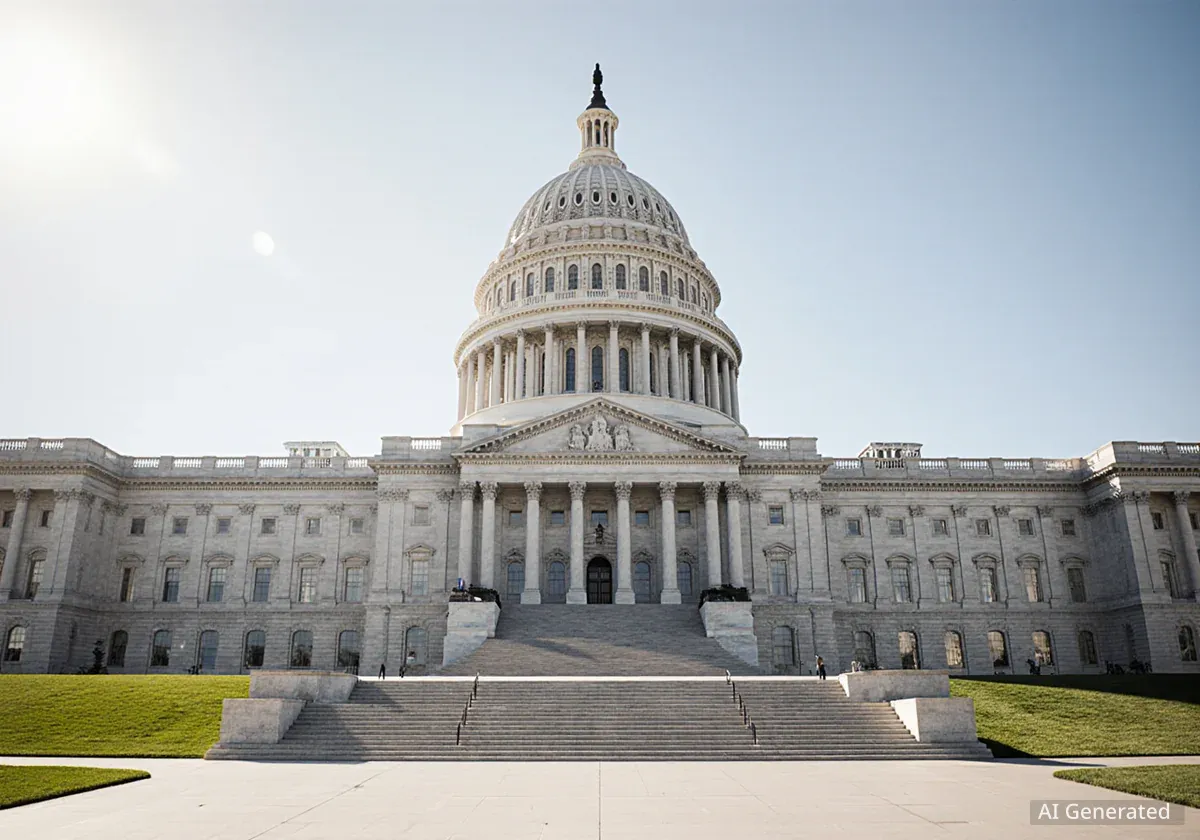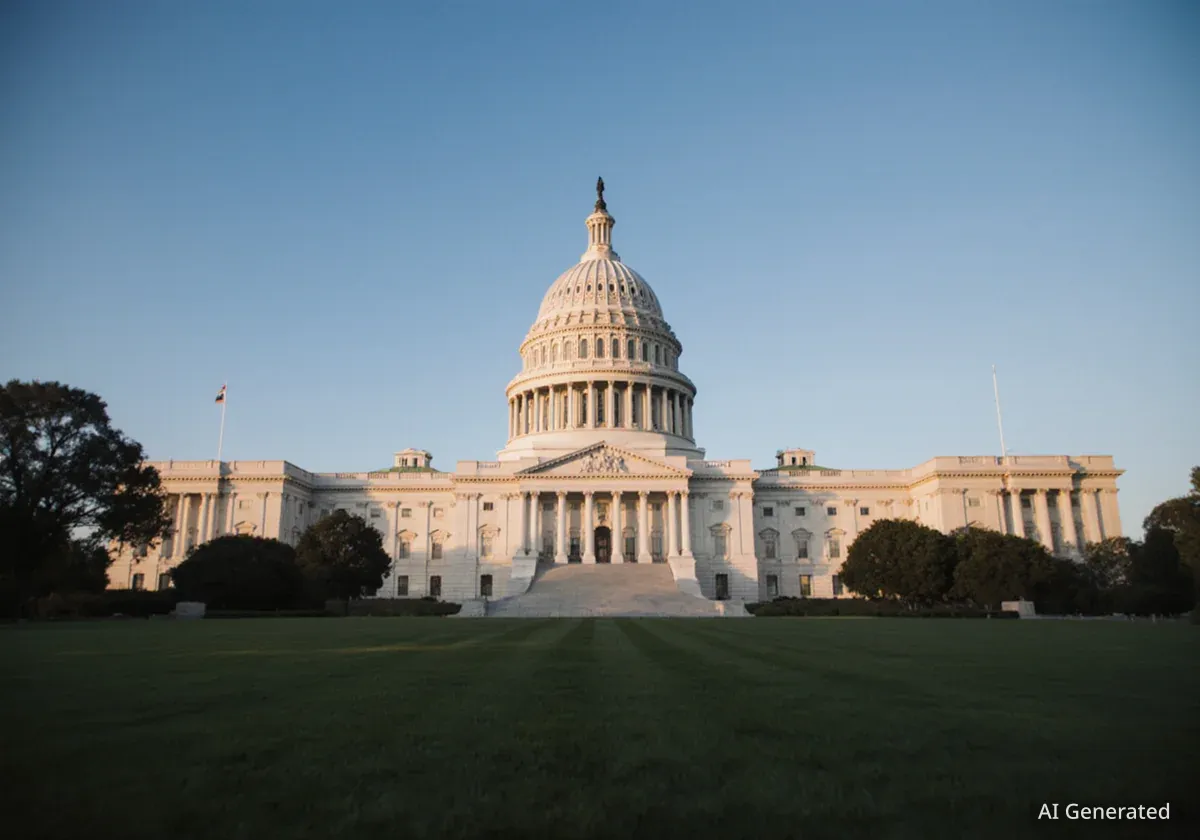The Trump administration has reportedly brokered a preliminary framework for a cease-fire and hostage exchange agreement between Israel and Hamas. The development follows direct intervention by former President Donald Trump, who engaged with Israeli Prime Minister Benjamin Netanyahu to secure consent for the plan.
The proposed agreement, which comes as the two-year mark of the October 7th attacks approaches, aims to secure the release of hostages held in Gaza in exchange for a pause in military operations and the release of Palestinian prisoners. While the initial phase has been accepted, significant details remain under negotiation, and the long-term governance of Gaza presents a major challenge.
Key Takeaways
- Former President Donald Trump directly intervened to secure an agreement from Prime Minister Benjamin Netanyahu for a hostage-for-cease-fire plan.
- The framework includes a mandated phone call from Netanyahu to Qatar's Prime Minister to address a previous Israeli strike on Doha.
- Israeli domestic politics show division, with far-right coalition members opposing the deal while centrist parties offer support.
- Critical details, including withdrawal lines and prisoner exchange specifics, are still being negotiated.
- The long-term plan for governing and reconstructing Gaza remains a significant unresolved issue for regional and international stakeholders.
Details of the Proposed Agreement
The framework for the agreement centers on a phased approach, beginning with a cease-fire in exchange for the release of hostages. According to reports, former President Trump presented the terms to Prime Minister Netanyahu, leading to Israel's acceptance of the initial stage. The first phase focuses exclusively on the humanitarian exchange, with more complex political arrangements deferred to later stages.
A significant component of the deal involves diplomatic reconciliation. As part of the agreement, Prime Minister Netanyahu was required to make a phone call on September 29 from the White House to Qatari Prime Minister Mohammed bin Abdulrahman Al Thani. Sources indicate the call was to formally apologize for a prior Israeli military strike in Doha, a move intended to restore diplomatic channels with a key regional mediator.
However, the initial agreement leaves several critical questions unanswered. Negotiations are ongoing to finalize the specifics, including:
- Israeli Withdrawal Lines: The extent of the Israeli military's pullback from positions within Gaza.
- Palestinian Prisoner Release: The number and identities of Palestinian prisoners to be released from Israeli jails.
- Security Guarantees: The mechanisms to ensure compliance with the cease-fire from all parties pending a final settlement.
Hamas's Position on the Deal
While Israel has agreed to the framework, Hamas has been described as a reluctant partner. The broader implications of the proposed settlement would significantly alter the power structure in Gaza, effectively sidelining the group's governance role. This aspect of the plan is a major point of contention and could complicate further negotiations. Hamas's full cooperation is essential for the agreement's success, but its long-term objectives may conflict with the proposed final outcome.
Background: The Role of Qatar
Qatar has long served as a crucial intermediary in the Israeli-Palestinian conflict. The nation hosts a Hamas political office and has provided significant financial aid to Gaza over the years. This unique position allows it to facilitate communication between parties that do not engage directly, making its involvement essential for negotiating cease-fires and hostage releases.
Political Reactions in Israel
The announcement of the agreement has created a sharp divide within Israel's government and society. Public opinion, particularly among the families of hostages, has largely been in favor of a deal that secures the return of their loved ones. This sentiment has been growing as the conflict has extended, with many citizens prioritizing the hostages' safe return over other military objectives.
Public Support for Hostage Deal
As the second anniversary of the October 7th attacks approaches, polling in Israel has consistently shown strong public support for an agreement that prioritizes the release of hostages, even if it requires significant concessions.
Within Prime Minister Netanyahu's coalition, the reaction has been polarized. Ultra-right members of the cabinet have voiced strong opposition, viewing the cease-fire as a concession to Hamas. They have previously threatened to collapse the government if such a deal were approved.
"The centrist opposition parties have pledged to provide a political safety net, offering the necessary votes in the Knesset to pass the agreement. This cross-party support effectively neutralizes the veto power of the far-right coalition partners on this specific issue."
This unusual political alignment underscores the national importance placed on resolving the hostage crisis. Commentators in Israeli media have noted the pressure on Netanyahu, who must navigate the demands of his right-wing base while addressing the overwhelming public desire for the hostages' return.
The Challenge of Governing Gaza
Beyond the immediate cease-fire and hostage exchange, the most difficult phase of the plan involves the future of Gaza. The proposed framework does not yet offer a clear solution for who will govern the territory once hostilities cease. This issue has been a persistent obstacle in past peace efforts.
Several regional powers, including Saudi Arabia and Egypt, are expected to play a role in both funding and overseeing the reconstruction of Gaza. These nations have their own strategic interests and are unlikely to support a plan that does not align with their regional security concerns. They have historically expressed skepticism about the Palestinians' political leadership but also resist any solution that appears to be imposed without regional consensus.
Former President Trump's vision for the region's future has been described as ambitious, with some reports suggesting a focus on large-scale economic and real estate development. However, regional leaders are expected to advocate for a more politically grounded solution that addresses Palestinian sovereignty and long-term stability.
West Bank Tensions Remain
The proposed deal focuses primarily on Gaza, leaving the issue of Israeli settlement expansion and military presence in the West Bank unresolved. Continued tensions in the West Bank could easily destabilize any peace achieved in Gaza. A durable settlement would likely need to address the broader Israeli-Palestinian conflict, not just the situation in one territory.
International Context and Future Outlook
The diplomatic initiative is seen by some observers as an attempt by Donald Trump to secure a significant foreign policy achievement. Reports have circulated suggesting that a successful resolution to the conflict could be positioned as a basis for a Nobel Peace Prize nomination, an accolade Trump has previously sought.
The timing of the deal also provides a diversion from domestic issues in the United States, including a potential government shutdown. The focus on a high-stakes international negotiation shifts public attention away from internal political turmoil.
Even if the initial cease-fire holds, the path to a lasting settlement is filled with potential pitfalls. Any number of factors, from internal political dissent in Israel to disagreements over reconstruction plans, could derail the process. The success of this initiative will depend on sustained diplomatic pressure and the willingness of all parties to make difficult compromises on core issues of security, governance, and territory.





